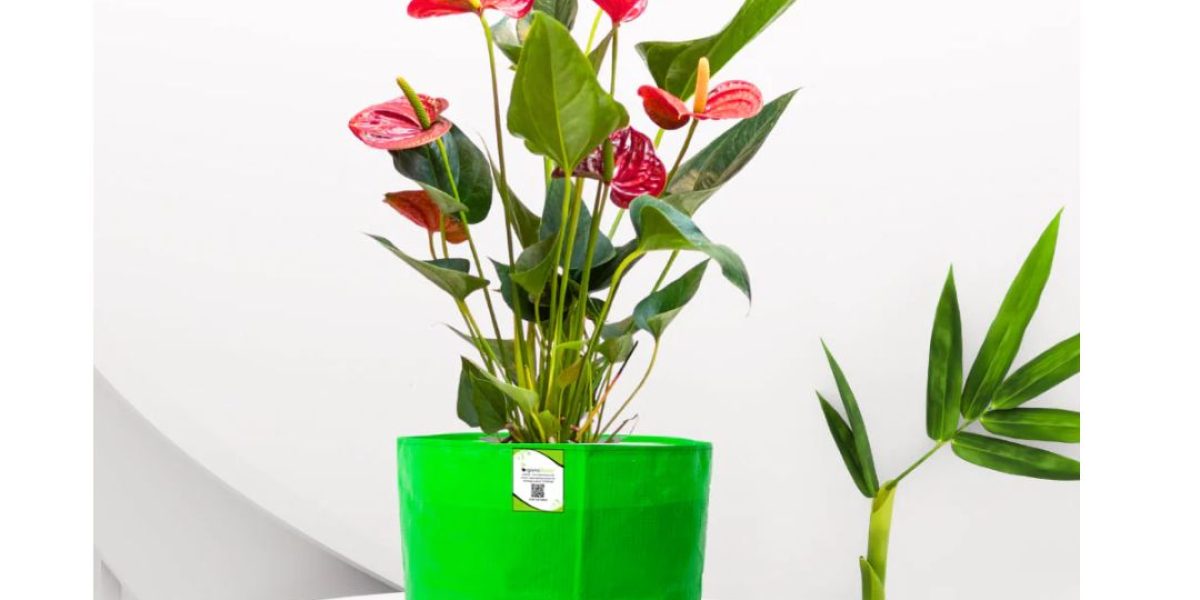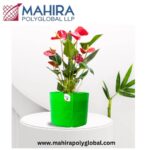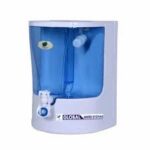As gardening practices evolve, more environmentally friendly and efficient solutions are being sought after to support plant growth in various environments. Among these, planter bags have become increasingly popular, offering several advantages over traditional pots and containers. These innovative solutions are lightweight, breathable, and highly versatile, making them ideal for a wide range of gardening needs. Plants grow bags or plant growing bags are widely used for everything from urban gardening to larger-scale agricultural projects. Their development has been made possible by advancements in Mahira Polyglobal LLP have been at the forefront of producing durable and sustainable products. In this article, we explore the benefits, uses, and considerations of planter bags in modern gardening.
What Are Planter Bags and How Do They Work?
Planter bags are soft, flexible bags used to grow plants in a controlled, portable environment. Unlike traditional pots, these bags are typically made from durable, breathable fabric, which allows for better root health and plant growth. The breathable nature of the material promotes air pruning, a process where roots are naturally pruned as they grow towards the edges of the bag and encounter air. This process prevents root-bound growth, a common problem in traditional pots, and encourages a more robust root system.
Plant growing bags come in various sizes, ranging from small containers for herbs and flowers to large bags for trees and shrubs. The ability to choose the appropriate size makes them ideal for growing a wide variety of plants. These bags are commonly made from materials such as non-woven fabric or felt, which are both durable and water-permeable, ensuring that plants receive adequate moisture without the risk of over-watering.
One of the key reasons for the popularity of planter bags is their portability. They can be easily moved, which is especially beneficial for those who have limited space or those who need to rearrange their garden or plant layout. Whether for a balcony, rooftop, or outdoor garden, planter bags offer a flexible and convenient solution.
Benefits of Using Planter Bags
There are numerous reasons why plant growing bags have become a go-to solution for gardeners around the world. These bags offer several advantages over traditional plant containers:
- Root Health: The most notable benefit of using planter bags is the improvement in root health. The breathable fabric allows air to circulate around the roots, which helps to prevent root rot and promotes healthy, vigorous growth. Additionally, the air-pruning effect prevents the roots from circling the bottom of the container, leading to a healthier and more expansive root system.
- Portability: Unlike traditional pots or containers, plants grow bags can be easily moved from one location to another. This is particularly useful for people living in apartments or homes with limited garden space. Whether you need to shift your plants to take advantage of the sun or move them indoors during a storm, the portability of planter bags makes them incredibly versatile.
- Water Drainage: Proper drainage is essential for healthy plant growth, and planter bags excel in this regard. The fabric material used in these bags ensures that excess water drains away efficiently, reducing the risk of waterlogged soil, which can lead to root rot. At the same time, the soil remains moist enough for plants to thrive, striking a balance between water retention and drainage.
- Space Efficiency: Plant growing bags are an excellent solution for gardeners with limited space. Their lightweight and flexible nature allows them to be stacked, hung, or arranged in tight spaces. For urban gardeners or those with small patios, these bags are ideal for creating a productive garden without the need for large plots of land.
- Cost-Effective: In comparison to traditional pots or planters, planter bags are an affordable option. The fabric used in their production is typically less expensive than other materials like ceramic or plastic, making them an economical choice for gardeners on a budget.
Versatility of Planter Bags
The versatility of Plant growing bags makes them suitable for a wide range of gardening applications. They can be used in both small-scale and large-scale gardening projects, whether for growing vegetables, fruits, herbs, or ornamental plants.
In urban gardening, planter bags are particularly beneficial due to their portability. They allow urban dwellers to grow their own food on balconies, rooftops, or patios, where traditional garden beds may not be an option. For people with limited space or poor soil quality, these bags provide a solution that requires minimal maintenance while delivering impressive results.
In larger-scale operations, plants grow bags are used for growing everything from strawberries to trees. Many farmers and horticulturists prefer fabric bags for crops that require good drainage and aeration. These bags are also perfect for situations where the soil quality is not ideal, as the soil inside the bag can be customized to suit the needs of specific plants.
Fabric Bag Manufacturers: Pioneering Sustainable Solutions
One of the driving forces behind the success of planter bags is the innovation brought about by fabric bag manufacturers. These manufacturers are constantly developing new materials and techniques to improve the performance and sustainability of their products. Many companies now offer eco-friendly options that use recycled fabrics or biodegradable materials, which further enhance the environmental benefits of using planter bags.
In addition to offering sustainable materials, fabric bag manufacturers are also focused on making the production process more efficient. Advances in manufacturing technology have made it possible to create high-quality planter bags at a lower cost, making them more accessible to gardeners of all kinds. By investing in sustainable practices, these manufacturers are helping to reduce the overall environmental footprint of gardening while ensuring that their products remain durable and effective.
Furthermore, many manufacturers are now offering customizable planter bags in various sizes, colors, and designs to meet the specific needs of gardeners. This level of personalization is another factor contributing to the increasing popularity of plant growing bags, as gardeners can choose the right bags to complement their specific needs and aesthetic preferences.
Planter Bags and Their Environmental Impact
When it comes to environmental impact, Plastic bag for gardening are an excellent choice for gardeners looking to reduce their carbon footprint. Unlike traditional plastic pots, which can take hundreds of years to decompose in landfills, many plant growing bags are made from materials that are either recyclable or biodegradable. Some fabric bags are even made from recycled materials, further enhancing their sustainability.
The use of planter bags can also reduce water usage. The breathability of the fabric ensures that water is distributed evenly throughout the soil, which helps to minimize water wastage. In regions experiencing water shortages or drought, planter bags can play a significant role in promoting more efficient use of water resources.
Additionally, since planter bags are reusable, they help reduce the need for single-use plastic containers, which are often discarded after one use. By investing in durable, reusable planter bags, gardeners can make a positive impact on the environment while also enjoying the benefits of healthier, more robust plants.
Choosing the Right Planter Bag for Your Needs
When selecting the right plant growing bags for your gardening needs, it is important to consider several factors, including the type of plants you wish to grow, the space available, and the materials used in the bags. Here are a few key considerations:
- Size and Depth: Planter bags come in various sizes, so it’s essential to choose a bag that suits the root system of the plants you wish to grow. Larger plants, such as trees or shrubs, require bigger bags, while smaller plants like herbs or flowers do well in smaller containers.
- Material: Choose a material that suits your growing conditions. Non-woven fabric bags are commonly used for their breathability and durability, while felt bags provide additional insulation for the roots. Some bags are also coated with UV-resistant materials to extend their lifespan when used outdoors.
- Drainage: Ensure that the planter bags have proper drainage holes to prevent water from accumulating and causing root rot. Many planter bags come with pre-punched holes, but you can also make your own if necessary.
- Portability: If you plan to move your plants around, look for bags with reinforced handles to make them easier to carry. Some bags are designed with built-in handles that make them more convenient to transport, especially when they are filled with soil and plants.
Conclusion: A Smart Choice for Sustainable Gardening
In conclusion, Garden Bag Planters are an ideal solution for anyone looking to grow plants in a sustainable and efficient manner. Whether you are a novice gardener or a seasoned horticulturist, these bags offer numerous benefits, from improved root health to space efficiency. With the support of fabric bag manufacturers, who continue to innovate and create eco-friendly and durable products, plant growing bags are becoming an essential tool in modern gardening.
By choosing planter bags, you are not only making a positive impact on your plants but also contributing to the well-being of the planet. As gardening trends continue to evolve, planter bags will undoubtedly play a significant role in promoting sustainable and efficient growing practices.
Frequently Asked Questions (FAQs)
- Are planter bags better than traditional pots?
Yes, planter bags offer better air circulation to the roots, prevent root-bound growth, and allow for improved drainage, which leads to healthier plants. - Can I use planter bags for large plants?
Absolutely! There are planter bags available in large sizes that can accommodate trees, shrubs, and other larger plants. Make sure to choose the appropriate size for the root system. - How long do planter bags last?
The durability of planter bags depends on the material used. High-quality fabric bags can last for several years with proper care and maintenance. - Are plant growing bags eco-friendly?
Many planter bags are made from recyclable or biodegradable materials, making them a more environmentally friendly option compared to traditional plastic pots.












